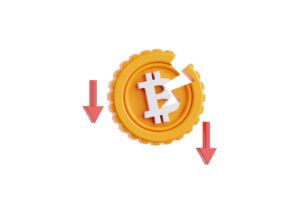So-called brick-and-mortar gold is and remains the first choice for many more traditional investors as a retirement provision and capital investment. With all the obvious advantages, you shouldn’t forget one thing: the correctness of the statement “ownership entails obligations”. When considering whether Bitcoin investments or real estate are the more sensible investment, investors in spe should never lose sight of this aspect. The fact that real estate ownership worldwide has paid off for years through increasing rental income and returns in the event of a resale should not make us forget that owners have to fulfill many obligations.
There are such obligations in several respects:
- towards the legislator or legal requirements
- towards possible tenants in home ownership
- with regard to the tax authorities and applicable tax regulations
From a tax perspective, there are undoubtedly rules in many countries for Bitcoin investors that you must adhere to when filing your income tax return. At least if you, as a good taxpayer, want to avoid looming problems with the responsible office in advance.
Crypto Market Soon to be more Strictly Regulated than the Real Estate Sector?
Several states have either initiated corresponding control guidelines, and in some cases, appropriate laws have already been passed. Crypto investors will no longer be able to escape the tax authorities at the latest when the G7 countries implement their joint regulations. And this should happen soon. For example, the German federal government has created comparable stricter rules for landlords – an important keyword in Germany: the rent control. Other countries have also already created such temporary upper limits or are planning such steps. Owners of residential property who rent it out completely or partially will probably soon no longer be able to freely decide which increases they want to undertake for existing and new tenants in view of the housing shortage in some European countries.
Bitcoin Returns Hardly Achievable in other Industries
A significant difference between the asset classes of real estate and Bitcoin (or other tempting digital currencies such as Ethereum or Monero) when you look at when returns are tempting. Anyone who buys a property today will probably not realize the hoped-for profit in a few weeks or months. It often takes years before apartments or houses generate large profits. The situation is quite different in the crypto market. Although investors of the hours who filled their wallets with Bitcoin units years ago are happy about more than impressive returns. At least this applies in cases where investors acquired coins when the BTC price was still in the three-digit or low four-digit range. Those who were patient were able to secure returns on sales that are not achievable in real estate, stocks and other asset classes even after many years.
On the other hand, there is always the quite high risk of loss. The past few weeks have shown how quickly the prices for Bitcoin, Ripple and Co. can increase. However, swings in the opposite direction are also conceivable at any time. In a direct comparison, real estate owners do not achieve double-digit dream returns within a very short time. But real estate is stable in value. Massive slumps are unlikely. How risk-averse investors are is therefore decisive at this point. Due to the increasing number of users in the field of cryptocurrencies, the fluctuation range is now less serious than at the time of the first boom.
Entry into the Crypto Market also Practical with Little Money
The differences between Bitcoin and real estate are undoubtedly clear when looking at the required investment sums. Due to the easy divisibility into the smallest fractions (the so-called “Satoshi”) of a Bitcoin, even small investors can benefit from rising crypto prices. Although there is also the possibility on the real estate market to speculate on a small scale via cooperatives, funds or similar offers. However, the realistic profits are correspondingly low. Because here you will of course also receive profits pro rata if real estate prices rise. In addition, particular attention should be paid to the problems with closed-end funds. Once investments have been made, they cannot be withdrawn prematurely. The contractual conditions decide when payments are made. In times of crisis on the real estate market, there is a risk of total loss. Profits that you book as a Bitcoin owner belong entirely to you after the successful sale – tax claims aside. Of course, the sales volume and the stock of the wallet determine what value investors can realize.
Real Estate Soon Payable with Bitcoin and Altcoins?
An interesting side note should not be withheld from you at this point. When asking the question “Bitcoin vs. Real Estate”, one point must not be forgotten. You are increasingly encountering offers on the real estate market that represent a bridge between both worlds. For example, the real estate sector now offers opportunities for buying apartments or houses with Bitcoins. What sounds as exciting as it is innovative is undoubtedly not entirely risk-free. And that goes for both buyers and sellers of real estate. Although prices on the real estate market usually remain quite stable in the short to medium term. The BTC price, on the other hand, regularly undergoes noticeable fluctuations. What still sounds like a good deal today can become a painful experience due to acute price developments. And this applies both to the previous owners, whose Bitcoins may be worth significantly less overnight, and to buyers.
| Exciting: → In 2019, auctions of real estate were held for the first time that could be paid for with Bitcoins! |
Swiss Authorities are Leading the Way in BTC Acceptance
The latter could have gotten significantly more for their coins by sticking to the Bitcoin holdings when the course boomed again. If only you had been a little more patient. Overall, the still dramatic fluctuations in value in Bitcoin, Monero and other altcoins pose a risk for both sellers and buyers. However, contract conclusions with BTC participation are generally possible in many countries from a tax point of view. If both sides know what they are getting into, there is nothing against processing transactions in this way. Apart from that, real estate buyers will of course continue to have to pay the usual ancillary costs (brokerage commission, taxes, etc.) in the classic way in Swiss francs.
Authorities do not yet accept digital currencies across the board. Depending on how the state assesses digital currencies in the future, this market area could continue to grow. It is the low fees that could speak in favor of cryptocurrencies, especially when buying real estate abroad.
Difference in Trading – Buying Real Estate is Very Complex
Anyone who strives for a realistic price when buying or selling has to invest a lot of time. Because both purchases and sales involve a great deal of bureaucratic effort. Do you own Bitcoin units and would like to sell them due to an acute need for capital or because of current price gains? With your wallet and access to a trading platform, transactions are completed within seconds. And that even if you execute orders with other crypto fans on the other side of the world. Despite increasing digitization, such quick processing is at least currently not conceivable. Here, crypto trading scores – even with other coins such as Monero or Dash – even with larger transactions. Many exchanges name certain upper limits for trading.
→ BTC purchase succeeds without much effort and cost
In the case of a real estate acquisition, there are also not only the two parties buyer and seller. Instead, a number of people and institutions are involved. A broker or a real estate exchange, a notary, financial authorities and regional institutions where the new buyer is registered … the number of people involved automatically increases the expenses – of course primarily for buyers who have decided on an objective. The Bitcoin purchase can be processed by interested parties directly via exchanges in coordination with other members. As a rule, the only fees incurred are commissions for the brokerage of the transaction, which are charged by the operators of trading platforms.
Real Estate Industry Gets to Know the Possibilities of the Blockchain
Finally, another connection between Bitcoin or the blockchain and the real estate world should be addressed. The opportunities of blockchain technology have also and especially spread in the real estate sector. There have been new approaches there for several years to digitally simplify the sale of residential and commercial properties. The infrastructure of Bitcoin is to be mentioned in this case primarily due to the leading role of BTC. But alternatives such as Ethereum are also proving to be an increasingly good approach for the sale of real estate – keyword “Smart Contracts”. High commissions and costs due to the involvement of lawyers could be significantly reduced or perhaps completely prevented in the future. However, a comprehensive organization of real estate transactions via blockchain is still proverbial music of the future.
But there is increasingly progress. And so the question “Bitcoin or Real Estate” may soon no longer arise due to the stronger link between the two areas. Investors who place great value on risk diversification can make an important contribution to their own portfolio with both areas.
CoinPro.ch series: Compares asset classes:
Part 1: Bitcoin or Gold?
Part 2: Bitcoin or Stocks?
Part 3: Bitcoin or Real Estate?
Part 4: Bitcoin or ETFs?



